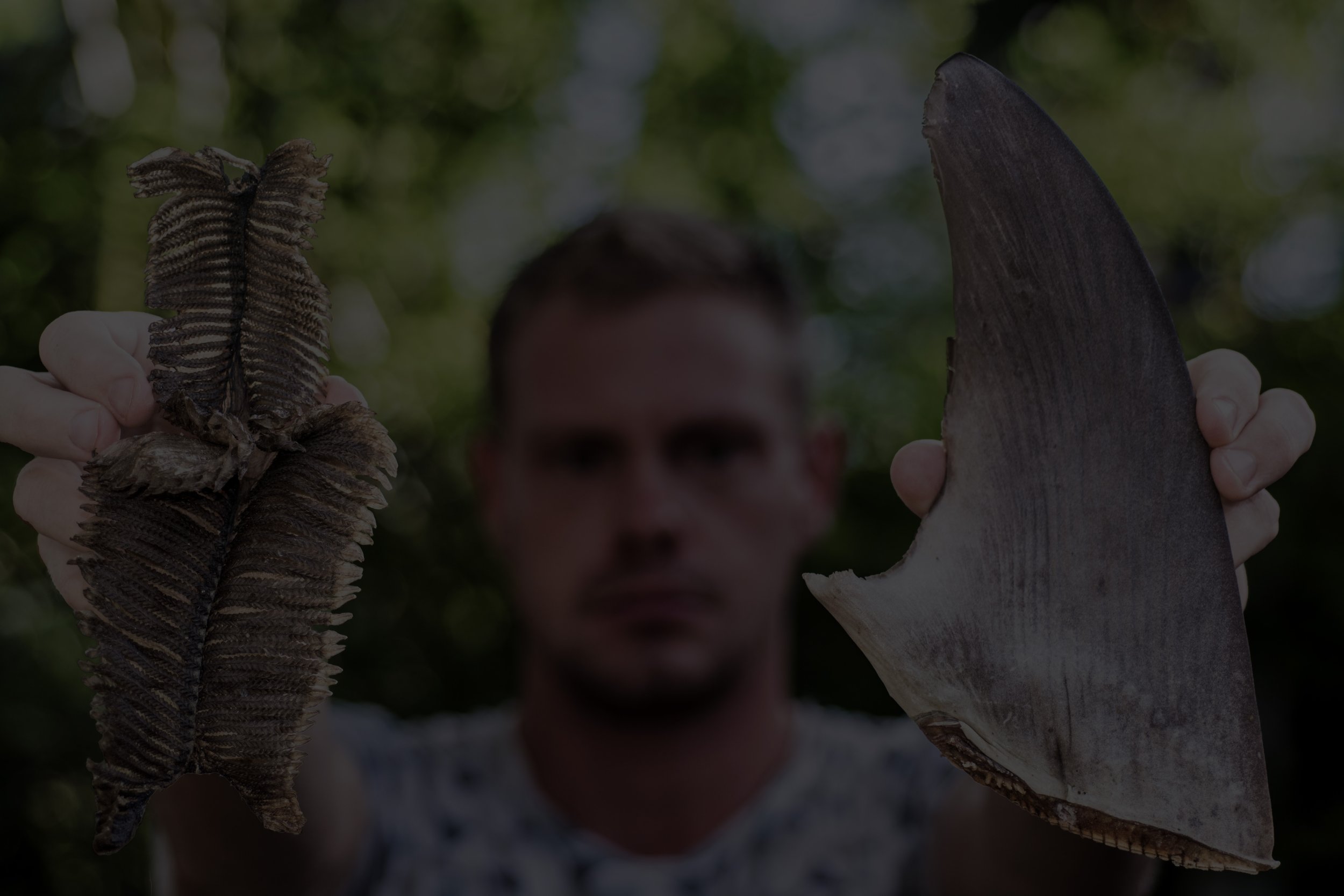
SCIENCE & CONSERVATION
As a marine biologist and conservationist, my work is rooted in a deep appreciation and love for the oceans and the incredible array of life they support. I am passionate about studying and understanding the complex interactions between marine ecosystems and the impact of human activities on these delicate systems. But more than that, I believe it is crucially important to use this knowledge to advocate for conservation and to protect these vulnerable ecosystems for future generations. That’s why I try to incorporate conservation into my work whenever possible.
Fish Free February
In 2019 after visiting numerous fish markets documenting shark and ray landings, it dawned on me that I had seen far more species of shark in one morning at a fish market than I’d seen alive in 15 years of diving.
On top of that, some of the tuna that these boats were unloading were destined for European and American consumers.
The human population has more than doubled in the last 50 years and the average person is now eating over twice as much seafood as they did half a century ago, increasing fishing pressure on wildlife around the world.
Fish Free February is a UK-registered charity I founded that uses the month of February as a challenge for people to cut seafood out of their diet completely and raise awareness of the impacts industrial fisheries have on the oceans.
Keen to take the challenge? Click the link below.
Get in touch if you’d like to support Fish Free February.
Maldives Oceanic Manta Ray Research
Since 2018, I have been heading up the Maldives Oceanic Manta Research Project under the Manta Trust. The Maldives is widely regarded as one of the best locations in the world to swim with reef manta rays (Mobula alfredi), but what we have uncovered recently is that the Maldives is also seasonally frequented by a large number of endangered oceanic manta rays (Mobula birostris).
This research project aims to document the population of oceanic manta rays in the Maldives, answering questions about their population demographics, and determining their movements, migrations, and habitat range.
This work has major conservation importance as these slow-growing ocean giants are being caught and killed in staggering numbers being neighbouring Sri Lankan and Indian fishing fleets every year. It is a race against time to understand more about these mysterious creatures and establish conservation measures to protect them.
Get in touch if you’d like to sponsor this research.
Scientific publications
A review of manta and devil ray courtship and mating. (2025)
M. Carpenter, A. P. Klimley, A. Boggio-Pasqua, M. D. Palacios, A. O. Armstrong, S. Hilbourne, M. Guerrero, M. Lapinski, K. Fuentes & G. M. W. Stevens
Humpback Whales Blow Poloidal Vortex Bubble Rings. (2025)
Fred Sharpe, Jodi Frediani, Josephine Hubbard, Doug Perrine, Simon Hilbourne, Joy S. Reidenberg, Laurance R. Doyle, Brenda McCowan
Genetic and morphometric support for the Atlantic Pygmy Devil Ray, Mobula hypostoma (Bancroft, 1831), in the Eastern Atlantic Ocean (2025)
Emily Humble, Atlantine Boggio-Pasqua, Aristide Takoukam Kamla, Kim Bassos-Hull, Stephen Bergacker, Marc-AlexanderGose, Simon Hilbourne, Betty Laglbauer, Ana Martinez-Lopez, Cedrick Fogwan, Cedric I. Biankeu, Guy M. W. Stevens, Giuseppe Notarbartolo di Sciara
Only One Percent of Important Shark and Ray Areas in the Western Indian Ocean Are Fully Protected From Fishing Pressure. (2025)
Jesse Cochran, Ryan Charles, … , S. Hilbourne, … , Michael Berumen, Rima Jabado
Intraspecific differences in short- and long-term foraging strategies of reef manta ray (Mobula alfredi) in the Chagos Archipelago. (2023)
Joanna L. Harris, Clare B. Embling, Genevieve Alexander, David Curnick, Ronan Roche, Niv Froman, Marleen Stuhr, Elaine S. Fileman, Simon Hilbourne, Rebecca Carter, Annie Murray, Jessica Savage, Guy M.W. Stevens
Fine-scale oceanographic drivers of reef manta ray (Mobula alfredi) visitation patterns at a feeding aggregation site. (2021)
Joanna L. Harris, Phil Hosegood, Edward Robinson, Clare B. Embling, Simon Hilbourne, Guy M. W. Stevens
Infographics for publications
Being able to effectively convey scientific findings of marine research in a digestible manner is vital to sharing the result of robust scientific studies. Below is a selection of infographics I designed and created for peer-reviewed publications whilst at the Manta Trust.








